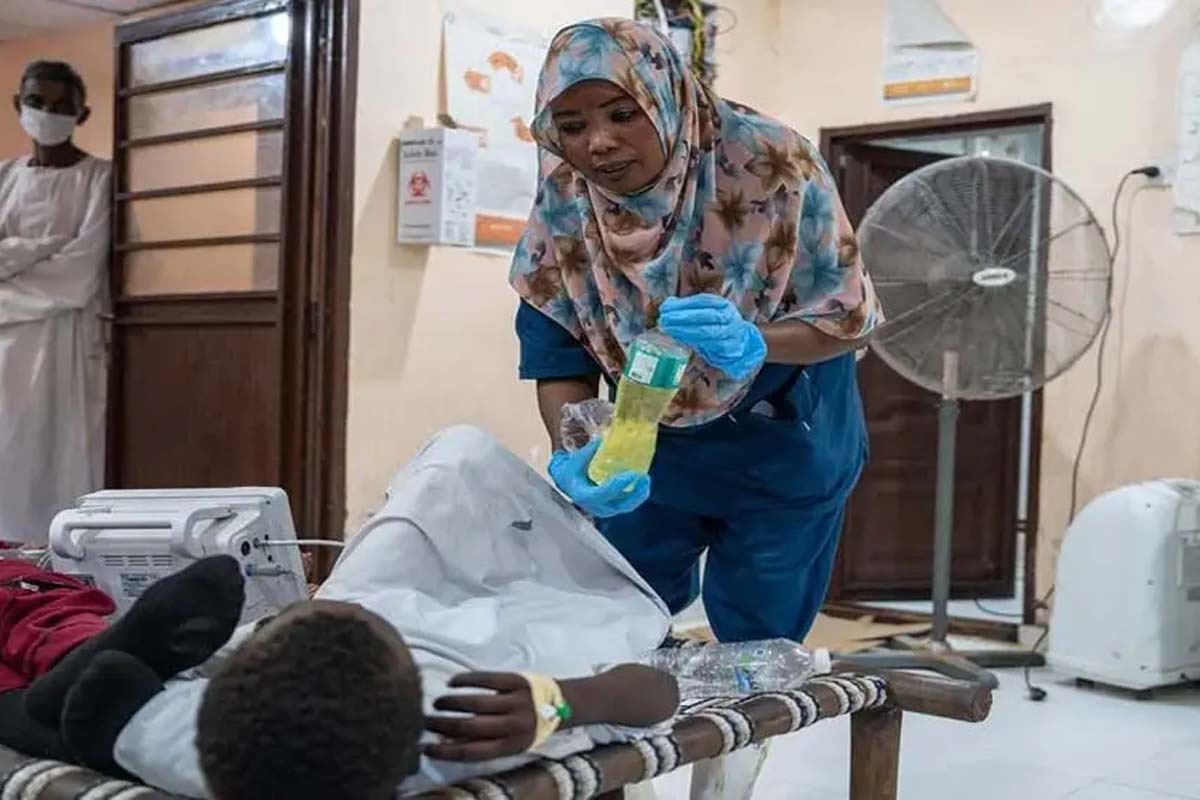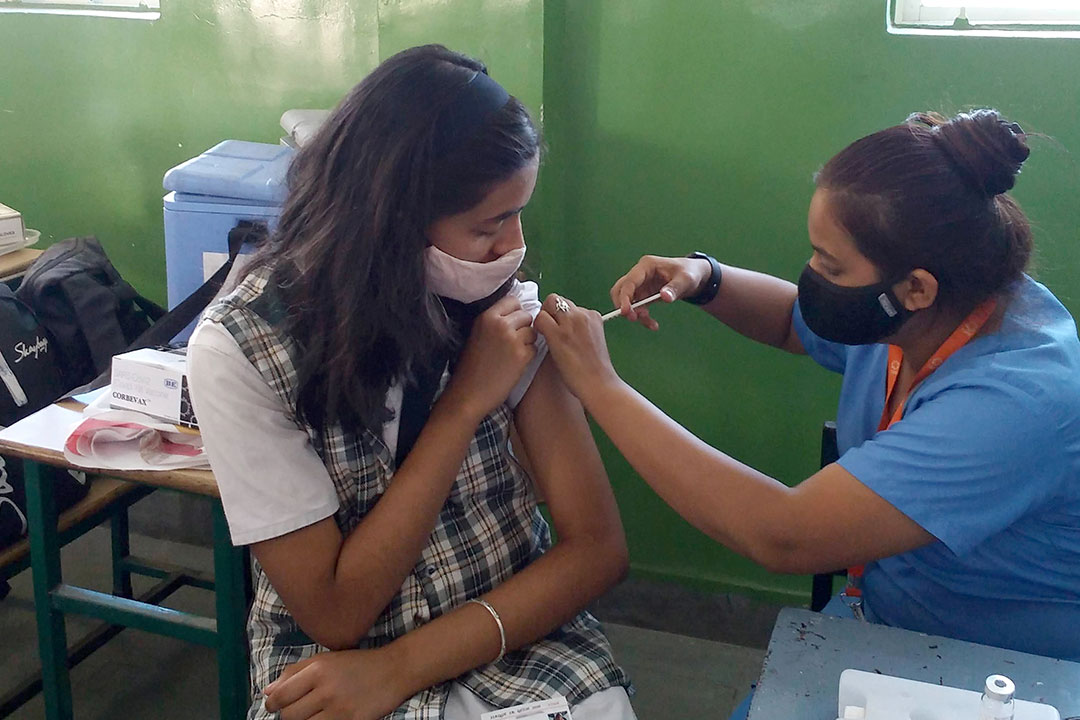Cholera spreads across every state in Sudan
Rains and floods threaten to worsen a cholera crisis that has spread to the whole of Sudan.
- 24 September 2025
- 4 min read
- by SciDev.Net

A cholera outbreak that has claimed thousands of lives in war-torn Sudan has spread to every state and threatens to intensify as the rainy season continues, international agencies warn.
Shible Sahbani, World Health Organization (WHO) representative and head of mission in Sudan, said the disease had spread across 133 areas of all 18 states, with more than 105,000 cases and over 2,600 deaths reported since it began in July 2024.
Cholera, a bacterial disease usually transmitted through contaminated food or water, causes severe diarrhoea and dehydration and can kill within hours if left untreated.
But for many affected communities, treatment is out of reach with health services crippled by the war that has been raging for more than two years.
“Cases in some areas have begun to decline, but there are still new infections in areas of displacement, recorded due to the rainy season, and with the occurrence of floods we expect an increase in cases,” Sahbani told SciDev.Net.
Despite vaccination and prevention efforts, heavy rains have damaged the already weak sewage systems and washed waste into streets and residential areas, increasing water and food contamination. Stagnant pools of water have also created an ideal breeding ground for disease-carrying flies.
The war has forced hundreds of thousands of families to flee their homes and cram into overcrowded shelters, which lack clean water and sanitation, making them hotbeds for the rapid spread of disease.
Along with damage to water and electricity infrastructure, around 80 per cent of health facilities are out of service, fuelling the spread of infection as people struggle to access safe water, adequate food, and medical treatment.
Earlier this year, around 370,000 people fled to the Tawila region of North Darfur, where aid agencies have reported “catastrophic sanitary conditions”.
“Families in the camps often have no choice but to drink dirty water, which is the main cause of the spread of cholera,” says Sylvain Penicaud, project coordinator for Médecins Sans Frontières (Doctors Without Borders/MSF) in Sudan.
He adds: “One of the tragic incidents that reveals the scale of the tragedy is that a body was found in a well inside one of the camps and was recovered in two days, but people were forced to drink the same water again.”
In August alone, MSF teams in Tawila, in collaboration with Sudan’s Ministry of Health, treated more than 2,300 cholera patients, leaving the 130-bed treatment centre at the local hospital overwhelmed.
According to UN agencies, around 380,000 people have arrived in the small town of Tawila since last April, fleeing the fighting around the El Fasher and Zamzam refugee camps, putting pressure on water resources in the area.
The spectre of cholera also looms over Sudan’s neighbouring countries, such as Chad and South Sudan.
In Chad, François Batalingaya, the UN resident and humanitarian coordinator there, says: “Given the overcrowding and unsanitary conditions in the refugee camps, where some 300,000 stranded people live, an outbreak could be devastating, especially with few relief services due to a lack of funding.”
Within weeks of suspected cases being detected near the border, an outbreak was reported in the Dougi refugee camp, which then spread to other areas of eastern Chad, where the Ministry of Health announced 68 deaths from the disease in late August.
In South Sudan a cholera outbreak that began in October 2024 had resulted in more than 80,000 cases and 1,400 deaths by July this year, according to UN agencies.
While UN agencies are calling for more funding to tackle the crisis, Sudanese health activists believe that any support will be no more than a sticking plaster unless the war stops.
The UN Office for the Coordination of Humanitarian Affairs estimates that US$50 million in funding is urgently needed to support the cholera response, but only 16 per cent of that has been received.
“We have participated in response campaigns that have successfully treated many patients, but the situation remains urgent as the rainy season continues,” Salah Mohyeldeen Aljailany, of the Sudan Family Planning Association, told SciDev.Net.
“Rapid action is imperative, but any efforts will remain mere palliatives unless the war ends. Those who survive the fighting may die of disease.”









